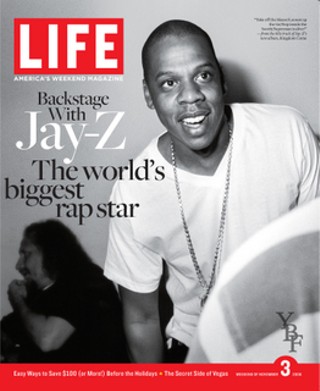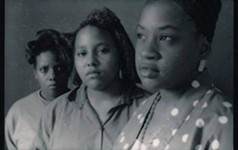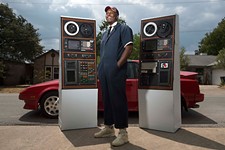Civil Rights v. Hip-Hop
Martin Luther King v. Jay Z
By Kahron Spearman, 11:30AM, Tue. Jan. 20, 2015

On Oprah’s Master Class, rap giant Jay Z postulated that hip-hop had done more for race relations than most civil rights leaders, using the “turn-up” as proof of change. “If you look at clubs and how integrated they have become – before people partied in separate clubs... and now people party together,” said the Roc Nation CEO. Let’s break this down.
Jay has a point in that hip-hop has obviously helped race relations around the world. Interracial friendships and dating are at an all-time high, which could anecdotally be attributed to hip-hop. However, against sturdier data, it’s clear that there are, as Meek Mill would say, levels to this.
What rap has definitively enhanced is society’s ability to shed differences, to temporarily liberalize mostly surface level items, like the changes in club attendance. What rap hasn’t changed is what happens outside of the club. Also unchanged, in any fundamental context, is how each of the participants are able to enjoy the club.
According to a December 2014 Pew Research report based on Federal Reserve data, the median white household was found to have 13 times the wealth as black households. Additionally, the widening gaps in inheritance statistics, credit access, and unemployment (even amongst those with degrees) yield a worsening state of affairs. Blacks are earning more than ever, but are losing pace amongst whites at historic rates.
Thomas Pinketty, author of Capital in the 21st Century, as well as Fed chairwoman Janet Yellen in her plea of action over the ocean-wide wealth gap, should illuminate serious issues through strands of the same locus points. This isn’t a financial blog – I will leave the specifics to those with MBAs and fellowships at Wharton or Sloan. The point is that stratification along racial lines has increased, and the number of reasons for the disparity rival the leagues of sea.
Returning to literal application, i.e. the turn up, the white patron, on average, can get more bottles than the black patron, if the latter can even afford bottle service. Of course, a good time can be had for nothing, so let’s level up. Having a distinct voice provides incredible value, no question. However, what other tangibles has hip-hop gained, compared to previous civil rights leaders?
Martin Luther King paved the way for blacks to vote without fear. For this, poverty, and myriad issues, he and other leaders (publicized and unknown) gave all they had. Some, like King and Malcolm X, gave their lives. Many black entertainers of that time participated in the efforts at the threat of real violence and possible stagnation of their careers. Today, a relative handful of artists might make it out to rallies of slain young men, or protest in hashtag.
Believing hip-hop artists have accomplished as much (or more) than civil rights leaders is not only unfair to both parties, it’s an incongruent argument. Hip-hop has always, and continues, to speak on the realities of inner-city life, but it’s a speakerphone – a medium for action – not finality.
There are those, like Talib Kweli, that take a mainline approach. There are those who rap about trapping, misogyny, and drug consumption, which actually explains a multitude of issues within minority communities. If taken to origin, you reach back to what leaders have been trying to tackle since King’s day.
The problem is that the battle lines are drawn in places hip-hop is actively backing away from, the ones drawn along all facets of inequality, especially financial disparity. Those who have – who really have, not rapper/athlete have – aren’t going to allow those without to catch up, because this would require structural changes in society. Life, as you know it, would have to be forever altered to cater to those without.
Further encapsulation of disparity can be found in tracks heard in those clubs, where rappers consistently disparage those who aren’t achieving their financial successes. Closer to the ground than the CEO will ever want to be, rappers talk directly to the lesser-thans, chiding them for failure. Hip-hop music today speaks to capitalism better than Keynes, Hayek, Rand, or Friedman ever could.
Picture it, along the averages: the haves entertaining have-somes with real money to buy bottles. Have-a-littles share one bottle. They’re all being entertained by champagne guzzling have-more-than-a-littles castigating the likely have-nevers, who can only afford a six-pack and weak sack of bud.
Turn down for what?
A note to readers: Bold and uncensored, The Austin Chronicle has been Austin’s independent news source for over 40 years, expressing the community’s political and environmental concerns and supporting its active cultural scene. Now more than ever, we need your support to continue supplying Austin with independent, free press. If real news is important to you, please consider making a donation of $5, $10 or whatever you can afford, to help keep our journalism on stands.
Sept. 15, 2023
Sept. 8, 2023
Civil Rights v. Hip-Hop, Jay Z, Oprah Winfrey, Martin Luther King, Malcolm X, Talib Kweli, Thomas Pinketty, Janet Yellen








